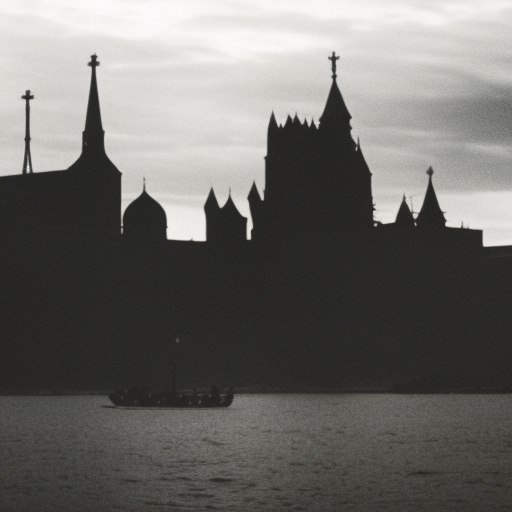The Northern Crusades: Converting the Baltic
The Northern Crusades were a series of military campaigns launched by Christian forces in the 12th and 13th centuries with the aim of converting the pagan peoples of the Baltic region to Christianity. These crusades were distinct from the more well-known Crusades to the Holy Land, but they shared a similar goal of expanding Christian influence and control.
Background
The Baltic region, comprising present-day Estonia, Latvia, Lithuania, and parts of Poland and Russia, was inhabited by various pagan tribes during the medieval period. The Catholic Church saw these pagan peoples as a threat to Christianity and sought to bring them under its influence. The Northern Crusades were also motivated by political and economic factors, as the Christian powers sought to gain control over the lucrative trade routes in the Baltic.
The Wendish Crusade
The first major campaign of the Northern Crusades was the Wendish Crusade, launched in 1147. Led by the German king, Conrad III, and supported by Danish and Polish forces, the crusaders aimed to subjugate the Slavic Wends, who inhabited the region around the Baltic Sea. The crusaders achieved some initial success, capturing the Wendish stronghold of Demmin and establishing the Bishopric of Roskilde. However, their advance was eventually halted, and a peace treaty was signed in 1150, allowing the Wends to retain their independence.
The Livonian Crusade
The Livonian Crusade, which took place from the late 12th century to the early 13th century, was the most significant of the Northern Crusades. It was directed against the pagan tribes of Livonia, a region encompassing present-day Latvia and Estonia. The crusade was led by the Teutonic Knights, a military order founded during the Third Crusade. The knights, along with Danish and German forces, launched a series of campaigns to conquer and convert the pagan Livonians.
The Teutonic Knights established a network of castles and fortified towns throughout Livonia, including the famous fortress of Riga. These strongholds served as bases for further expansion and colonization. The Livonian Crusade was marked by fierce resistance from the pagan tribes, but over time, the crusaders gained the upper hand. In 1202, the Livonian Brothers of the Sword, a military order allied with the Teutonic Knights, was formed to further consolidate Christian control in the region.
The Prussian Crusade
The Prussian Crusade, also known as the Baltic Crusade, was another important campaign of the Northern Crusades. It aimed to convert the pagan Prussians, who inhabited the area now known as Prussia, a region spanning parts of present-day Poland and Russia. The crusade was launched by the Teutonic Knights in the early 13th century and lasted for several decades.
The Teutonic Knights, supported by forces from Germany and Poland, gradually conquered the Prussian tribes and established the State of the Teutonic Order, a powerful crusader state in the Baltic region. The conquest of Prussia was marked by brutal warfare and the forced conversion of the pagan population. The Teutonic Knights ruled over Prussia until their defeat by the Polish-Lithuanian forces in the Battle of Grunwald in 1410.
Legacy
The Northern Crusades had a lasting impact on the Baltic region. The campaigns resulted in the Christianization of the pagan tribes and the establishment of Christian states, such as the Livonian Confederation and the State of the Teutonic Order. These states played a significant role in the political and cultural development of the region. The crusades also facilitated the spread of German influence and colonization in the Baltic, leading to lasting German settlements and the formation of German-dominated cities.
In conclusion, the Northern Crusades were a series of military campaigns aimed at converting the pagan peoples of the Baltic region to Christianity. Led by various Christian powers, including the Teutonic Knights, these crusades resulted in the establishment of Christian states and the Christianization of the Baltic tribes. The campaigns had a lasting impact on the region, shaping its political, cultural, and religious landscape for centuries to come.












